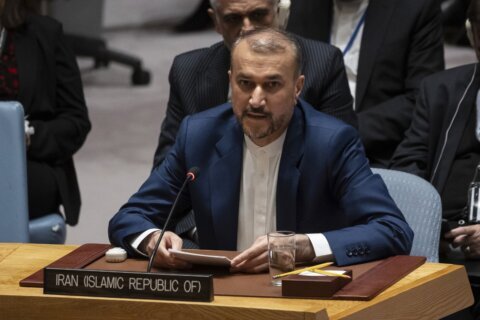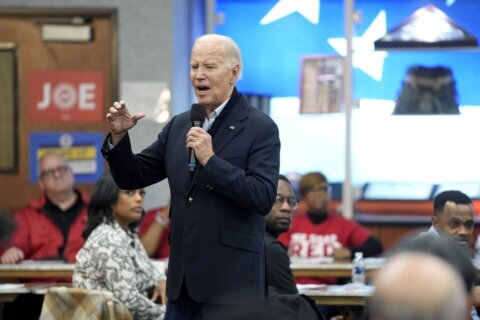JERUSALEM (AP) — Israel’s prime minister on Sunday welcomed a U.S. proposal for setting the maritime border with Lebanon, saying the American plan for resolving a long-running dispute between the neighboring countries would lift Israel’s economy and boost regional security.
Prime Minister Yair Lapid said the proposal was delivered over the weekend to both Israel and Lebanon. While he said it was still being studied, he said the plan would strengthen Israel’s northern areas near the Lebanese border, allow Israel to produce additional natural gas and deliver new revenues to the national coffers.
“This is a deal that strengthens Israel’s security and Israel’s economy,” Lapid told his Cabinet.
He also said Israel would not oppose the development of “an additional Lebanese gas field” straddling the maritime border, as long as Israel receives “the share we deserve.” He said this would weaken Lebanon’s dependence on Iran, restrain the Hezbollah militant group and promote regional stability.
He said the deal was being reviewed by legal and defense officials before it is to be voted upon by the government. Israeli media said a vote could take place Thursday.
On Saturday, the proposal was also delivered to Lebanese leaders.
Israeli opposition leader Benjamin Netanyahu, under whom the negotiations began in 2020 and who is hoping to return to power in November elections, said he opposed the emerging deal and wouldn’t be bound by it if reelected. Lapid, the country’s caretaker premier, is hoping to fend off Netanyahu in the polls.
“Lapid has no mandate to give sovereign territory and sovereign assets that belong to all of us to an enemy state,” Netanyahu said.
Lebanon and Israel have been officially at war since Israel’s creation in 1948 and both countries claim some 860 square kilometers (330 square miles) of the Mediterranean Sea.
Amos Hochstein, a senior adviser for energy security at the U.S. State Department who has been mediating between the two neighbors, last visited Beirut in September, where he expressed optimism after meeting with Lebanon’s leaders.
Lebanon’s parliament speaker, Nabi Berri, said in an interview with the London-based Asharq Al-Awsat newspaper Saturday the proposal “in principle meets the Lebanese demands.”
Lebanon hopes to unleash offshore oil and gas production as it grapples with the worst economic crisis in its modern history, plunging three-quarters of its population into poverty.
A Lebanese official who attended the talks last month told The Associated Press that the proposal put forward by the U.S. envoy gives Lebanon the right to the Qana field, located partially in Israel’s domain. A part of it stretches deep into a disputed area. The official added that the main point now is how to draw the demarcation line in a way that stretches south of Qana. Lapid’s comments appeared to be a reference to the emerging agreement over Qana.
Israel set up a gas rig at its designated location at the Karish field. Israel says the field is part of its U.N.-recognized exclusive economic zone, while Lebanon insists Karish is in a disputed area.
In July, the Israeli military shot down three unarmed drones belonging to Lebanon’s Iran-backed militant group Hezbollah flying over the Karish field. Hezbollah’s leader has issued warnings to Israel over the maritime dispute, saying that “any arm” that reaches out to steal Lebanon’s wealth “will be cut off.”
The heavily armed group, which has fought several wars with Israel, has repeatedly said in the past that it would use its weapons to protect Lebanon’s economic rights. Hezbollah officials have however said they would endorse a deal reached between Lebanon’s government and Israel.
Hezbollah leader Hassan Nasrallah in a speech Saturday echoed similar sentiments to Lebanon’s top political leaders about Hochstein’s proposal, and reasserted that the Iran-backed party will back the Lebanese political leadership’s position. “God willing, if it reaches the desired and best result, it would be the result of national unity, cooperation, and solidarity,” he said.
Copyright © 2024 The Associated Press. All rights reserved. This material may not be published, broadcast, written or redistributed.







